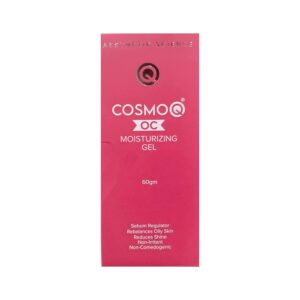VITAMIN E + CANADIAN WILLOWHERB + OILESS`CITY
Vitamin E: Drug name: Vitamin E
Use: Vitamin E is a supplement commonly used to treat or prevent vitamin E deficiency. It is also used as an antioxidant to protect cells from damage caused by free radicals.
Mechanism of action: Vitamin E is a fat-soluble vitamin that acts as an antioxidant in the body. It works by preventing the production of reactive oxygen species (free radicals) which can cause oxidative damage to cells. By neutralizing these free radicals, vitamin E helps protect cells from oxidative stress.
Dose: The recommended dietary allowance (RDA) of vitamin E varies depending on age and sex. For adults, the RDA ranges from 15 mg to 15 mg of alpha-tocopherol (a form of vitamin E). However, higher doses are often used in cases of vitamin E deficiency or as antioxidant therapy.
Side effects: Vitamin E is generally considered safe when taken in the recommended doses. However, high doses of vitamin E (>400 IU per day) can increase the risk of bleeding, especially in individuals taking blood-thinning medications. Other potential side effects of high doses include headache, nausea, fatigue, blurred vision, rash, and diarrhea. It is important to consult a healthcare professional before taking high doses of vitamin E or combining it with other medications.
Canadian Willowherb: I apologize, but there is no drug by the name “Canadian Willowherb” that is recognized or approved by regulatory authorities. It is possible that you may be referring to a herbal remedy or supplement made from the Canadian Willowherb plant. If that is the case, I can provide some general information about the plant and its traditional uses.
Canadian Willowherb, also known as fireweed or Epilobium angustifolium, is a flowering herbaceous plant native to North America, including Canada. It has a long history of traditional use by Indigenous people for various medicinal purposes.
Traditional uses of Canadian Willowherb include treating urinary tract infections, prostate issues, digestive problems, and skin conditions such as wounds, burns, and eczema. However, it is important to note that traditional use does not guarantee effectiveness, and scientific evidence supporting these claims may be limited.
Mechanism of action for Canadian Willowherb is not well-established as limited research has been conducted on the plant. It is believed that the plant may possess anti-inflammatory, antioxidant, and antimicrobial properties, which could contribute to its potential therapeutic effects.
Since there is no standardization for herbal products, dosing recommendations can vary depending on the specific product and formulation. It is recommended to follow the instructions provided by the manufacturer or consult a healthcare professional for appropriate dosage guidance.
Regarding side effects, there is limited information available on the potential adverse effects of Canadian Willowherb. However, as with any herbal remedy, there is a possibility of allergic reactions or interactions with other medications. It is advisable to exercise caution, especially if you have any known allergies or are taking other medications, and consult a healthcare professional before using Canadian Willowherb or any herbal product.
Oiless`city: I’m sorry, but “Oiless`city” does not appear to be a recognized drug name. It is possible that this may be a misspelling or a fictional drug. Can you please provide the correct name or any additional information so I can assist you better?

